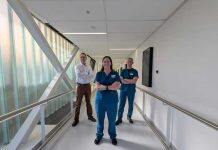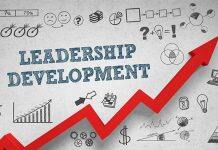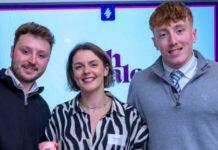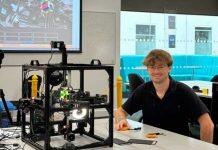Two national teaching programs will “revolutionise” science education in Australian schools and generate the next generation of Aussie Einsteins, quantum gurus, and our future science and technology workforce.
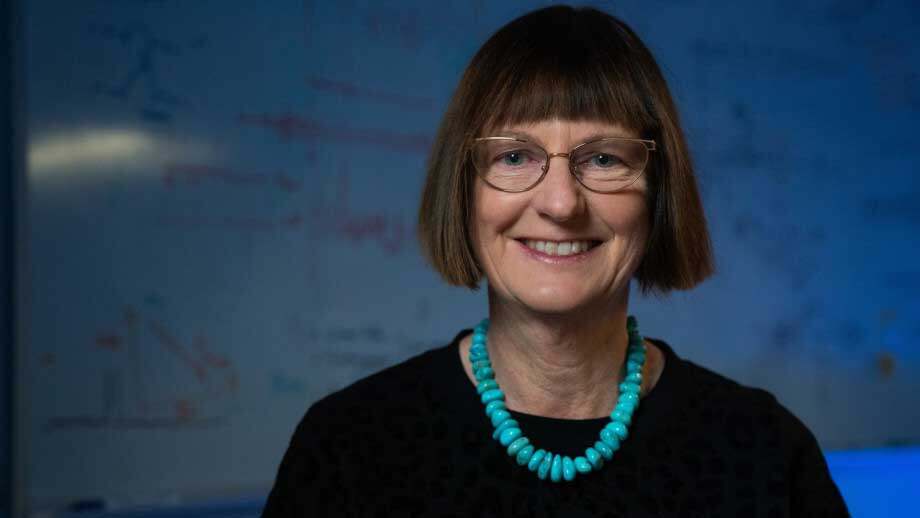

The national launch of the Quantum Girls and Einstein-First programs is being led by two Prime Minister’s Prize for Science winners, Distinguished Professor Susan Scott from The Australian National University (ANU) and Emeritus Professor David Blair from The University of Western Australia (UWA).
Both are members of a major international team that first detected gravitational waves in 2015 and Chief Investigators with the Australian Research Council Centre of Excellence for Gravitational Wave Discovery (OzGrav).
The two programs will bring primary and high school science education into the 21st century and help reverse Australia’s critical skills shortage in science, technology, engineering and maths (STEM), especially among young girls.
Distinguished Professor Scott said the lack of female students studying STEM in Australia was “disturbing”.
“We are at a critical time when it comes to developing our future STEM workforce,” Professor Scott, an internationally recognised researcher in gravity and senior member of Einstein-First, said.
“The challenges and opportunities are already here, whether it be AI, climate change or the future of computing. But at the moment our school system is failing us in what we need for the future. We can’t afford to let that happen.
”In Australia, we face a big problem of not enough school-leavers choosing to pursue a career in STEM fields, and this is especially true for girls. The Einstein-First and Quantum Girls programs are designed to ignite the interest and passion in science among primary and secondary school children.
“Kids are introduced to modern concepts in physics like black holes and quantum computers through immersive, interactive, group activities. They love it, and we believe that this will translate into more kids choosing STEM careers.”
Australian Government data from 2022 shows girls’ confidence in STEM subjects is generally lower than boys, and falls as they get older.
The data also shows that women only make up 36 per cent of enrolments in university STEM courses, and just 16 per cent of enrolments in vocational STEM courses. And just 23 per cent of senior management and eight per cent of CEOs in STEM-qualified industries are women.
Einstein-First has created a STEM education curriculum and associated teacher training program that introduces modern science concepts, giving children basic understanding of the science behind technologies that drive the modern world, as well as climate science and renewable energy.
“Einstein-First has been so successful in Western Australia that we decided to offer it to schools all over Australia. Teachers and students love the program,” Professor Blair, who began testing Einstein-First in schools more than 10 years ago, said.
“Kids want to learn about things like black holes and not science that dates from before quantum physics was discovered.
“The theories of Albert Einstein, who revolutionised science in the early 1900s, aren’t too hard for school kids. Our kids are curious and excited by science, including some of the most cutting-edge discoveries made in recent years. Sadly today, students have made it clear to us they think science at school is about ‘old stuff’.
“This is why we must modernise the curriculum. We must replace 19th-century concepts with 21st-century concepts, and teach everyone the language of modern physics, the language of Einstein, starting in primary school.”
The second program, Quantum Girls, is bringing quantum science and quantum computing into classrooms across Australia as well as STEM clubs and hackathons that are designed especially to inspire girls. Quantum Girls expands on the success of Einstein-First and aims to train 200 female teachers, who will then teach quantum science and quantum computing to 11- to15-year-old girls.
The program is co-directed by Professor Jingbo Wang of UWA, who said quantum computing was predicted to contribute $244 billion per year to the Australian economy by 2031.
“Quantum computers are an unstoppable revolution. The quantum thinking behind them is best learnt at an early age,” Professor Wang, who is a world-leading expert in quantum coding, said.
“We are committed to bringing the quantum world to primary and secondary students across Australia. Quantum Girls will help ensure we have a quantum-literate workforce as the revolution unfolds in real-time.”
Dr Jyoti Kaur is one of the talented women on the Einstein-First program and also has a key role in developing and delivering Quantum Girls.
“Our goal is to capture students at that crucial moment when they begin to doubt their affinity for science. We transform their perception from ‘science is not my subject’ to ‘science is my passion’,” she said.
“Through engaging and inspiring educational initiatives, we strive to reignite their curiosity, ignite their potential, and empower them to embrace the wonders of the universe.
“Equipping teachers with the tools of modern science and empowering them with hands-on activities is our mission. By fostering their expertise and enthusiasm, we unleash a wave of inspiration that ripples through classrooms, igniting a genuine interest in students.
“Rather than starving their curiosity, we aim to satisfy students’ hunger for knowledge about exciting topics like black holes, fueling their journey of exploration and discovery.”
Learn more about Einstein-First and Quantum Girls at the following website:
https://www.einsteinianphysics.com/



